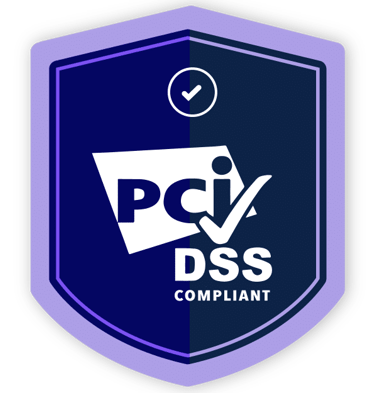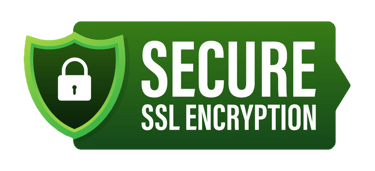Why Every Agency Needs a Dedicated QA Consultant in 2025
Learn why every home health agency needs a dedicated QA consultant in 2025 to remain Medicare-compliant, audit-ready, financially stable, and fully aligned with the latest Conditions of Participation.
The home health industry is entering 2025 with unprecedented regulatory scrutiny, rapidly evolving Medicare Conditions of Participation (CoPs), and increased expectations from CMS, state agencies, and accrediting bodies. Agencies are managing tighter margins, higher volume documentation demands, more complex patient populations, and a landscape where any compliance error can trigger audits, denials, and corrective action plans.
As a result, the role of a dedicated Quality Assurance (QA) consultant has shifted from a “nice-to-have” to a non-negotiable requirement for home health agencies aiming to stay compliant, financially stable, and survey-ready at all times.
In 2025, agencies must operate with precision. Every note, OASIS submission, care plan, and communication must align with the Medicare Conditions of Participation—§484.55 (Comprehensive Assessment), §484.60 (Plan of Care), §484.65 (QAPI), and §484.110 (Clinical Records). Failure to maintain continuous compliance can place agencies at risk of payment denials, sanctions, and even closure.
This article explores why every successful home health agency in 2025 needs a dedicated QA consultant, what this role actually contributes, and how outsourcing QA to experts ensures long-term success and regulatory protection.
1. The Regulatory Landscape Is Harder in 2025 — Not Easier
Increased CMS oversight
CMS has intensified its focus on documentation accuracy and patient eligibility. Even minor inconsistencies in clinical notes now lead to:
ADR (Additional Documentation Request)
TPE (Targeted Probe and Educate)
SMRC and UPIC audits
Payment suspensions
Medical necessity denials
Probe reviews on new agencies
QAPI performance scrutiny
Because of the rise in fraudulent activity nationwide, the bar for documentation has been raised. Agencies must show measurable decline, active skilled needs, and plan-of-care alignment for each visit.
A QA consultant ensures charts consistently meet CMS expectations—both clinical and regulatory.
State agencies are conducting more unannounced surveys
California, Texas, Florida, Illinois, and New York are conducting more unannounced surveys and immediate jeopardy investigations. Clinical records must always be ready—not just when a survey is anticipated.
A QA consultant helps the agency maintain survey-readiness at all times.
2. Documentation Requirements Are Too Complex for In-House Staff Alone
Increasing patient acuity
Home health patients in 2025 are more complex:
Cardiac conditions (CHF, CAD)
Respiratory issues (COPD, pneumonia)
Diabetes with complications
Alzheimer’s disease and safety concerns
Post-surgical recovery
Multi-comorbidity management
Nurses struggle to balance documentation and clinical care. Errors happen when agencies rely solely on field staff to maintain compliance.
QA consultants catch:
Missing skilled need justification
Missing visit frequencies
Plan-of-care inconsistencies
Incomplete OASIS items
Eligibility gaps
Missing coordination notes
Documentation that does not support ongoing services
One undocumented skill = one denied claim.
One denied claim = repeated denials if the pattern continues.
OASIS is too complex to risk errors
OASIS-E continues to be the centerpiece of:
Reimbursement (PDGM)
Quality Measures (QMs)
Star Ratings
Survey outcomes
A QA consultant ensures all OASIS assessments are accurate, properly coded, consistent with the narrative, and aligned with PDGM groupings.
3. Medicare Conditions of Participation Demand Continuous QA
The CoPs require ongoing evaluation of:
§484.55 – Comprehensive Assessment
QA ensures:
Timely completion of Start of Care (SOC)
Reassessment accuracy
Consistency between SOC, ROC, and Recert documentation
Inclusion of impairments, safety, teaching, and interventions
§484.60 – Plan of Care
A QA consultant reviews:
POC accuracy
Frequencies and durations
Alignment between POC and actual visits
Timely orders, signatures, and updates
§484.65 – QAPI Program
CMS requires:
A data-driven program
Quarterly QAPI reports
Performance improvement projects
Documentation of corrective actions
Evidence of ongoing monitoring
Most agencies fail this requirement without QA oversight.
§484.110 – Clinical Records
This CoP requires agencies to maintain:
Accurate, complete documentation
Immediately retrievable records
Legible, compliant entries
Timely submission and correction procedures
A QA consultant ensures every chart meets these CoPs—reducing the risk of survey deficiencies.
4. Billing Success Depends on QA Accuracy
Billing in 2025 is unforgiving. If documentation doesn’t support the PDGM billable period, the entire claim is at risk.
The top billing risks mitigated by QA include:
LUPAs from incorrect visit frequency
Payment denial due to lack of skilled need
Wrong primary diagnosis coding
Mismatched OASIS and clinical documentation
Missing orders
Untimely physician signatures
ADR response errors
QA consultants help agencies avoid:
❌ Lost revenue
❌ Delayed payments
❌ Recoupments
❌ Payment suspension
Even one failed ADR can trigger further audits. QA prevents this domino effect.
5. QA Consultants See What Internal Staff Cannot
Internal staff are often:
Overworked
Rushed
Too familiar with charts to notice errors
Not up-to-date on regulatory changes
Limited to reviewing only their own discipline
A dedicated QA consultant brings:
✔ Fresh eyes
They catch what supervisors miss.
✔ Regulatory expertise
They live and breathe Medicare guidelines.
✔ System-wide improvements
They identify patterns and agency-wide compliance gaps.
✔ Unbiased documentation review
They are not influenced by internal dynamics.
✔ Better staff education
QA consultants teach nurses how to document—not just what to document.
6. QA Consultants Mitigate Audit Risks Before They Happen
Audit consequences in 2025 include:
100% pre-payment review
Revocation of billing privileges
CMPs (Civil Money Penalties)
Payment holds
Survey follow-up
Focused clinical record review
Most agencies lack systems to prevent these issues.
A QA consultant:
Reviews every high-risk chart
Ensures proper eligibility documentation
Prepares ADR packets
Reviews visit narratives for decline, safety, symptoms, and interventions
Ensures PDGM accuracy
Supports operational compliance (QAPI, POC, assessments)
This level of prevention is impossible without a dedicated expert.
7. QA Improves Clinical Quality and Patient Outcomes
In 2025, quality scores matter more:
Star Ratings
Value-Based Purchasing (VBP)
Readmission metrics
Safety outcomes
Patient satisfaction surveys
QA consultants:
Improve communication between disciplines
Ensure that assessments reflect true patient needs
Validate accuracy of interventions and education
Confirm patient progress is documented and measurable
Help agencies meet clinical goals
Better documentation = Better outcomes.
8. QA Consultants Strengthen Agency Reputation and Growth
Referral sources prefer agencies with:
Strong compliance
Low readmission rates
No survey deficiencies
Positive patient outcomes
Reliable communication
A QA consultant contributes directly to:
Agency credibility
Growth in referral partnerships
Expansion into new counties
Strong operational readiness
Consistent survey success
In a competitive 2025 landscape, QA is a key differentiator.
9. Outsourcing QA Is More Cost-Effective Than Hiring Full-Time Staff
Hiring an internal QA nurse costs:
$90,000–$130,000 annually
Plus benefits
Plus training
Plus the risk of turnover
Outsourced QA consultants cost a fraction of this—while providing:
More expertise
Broader team support
Compliance oversight from multiple specialists
Zero turnover risk
Scalable coverage as census grows
This is why most agencies are now choosing external QA.
10. The Future of Home Health Belongs to Agencies With Strong QA Systems
Agencies that will thrive in 2025 and beyond are those that:
Invest in compliance
Maintain strong documentation
Build defensible charts
Prepare proactively for audits
Avoid survey deficiencies
Maintain strong PDGM outcomes
Keep staff educated and supported
A dedicated QA consultant is the foundation of all of these.
Conclusion: QA Is No Longer Optional — It Is Essential
2025 requires precision, compliance, and operational strength. Home health agencies cannot rely solely on clinicians or administrators to meet constantly changing Medicare requirements. A dedicated QA consultant ensures:
Every chart is compliant
Every OASIS is accurate
Every plan of care aligns with the patient’s needs
Every audit risk is minimized
Every survey is passed
Every episode is billable
Every clinician is supported
QA protects your license, your revenue, your reputation, and your long-term stability.
Need a QA Consultant? HealthBridge Is Here to Help
HealthBridge Consulting provides full-service Quality Assurance support for home health agencies nationwide, including:
Chart-by-chart QA review
OASIS and POC accuracy checks
Medicare CoP compliance
PDGM validation
ADR/TPE preparation
QAPI development
Survey readiness support
Staff education and documentation training
If your agency is ready to strengthen compliance, improve outcomes, and protect revenue, HealthBridge is your partner.





